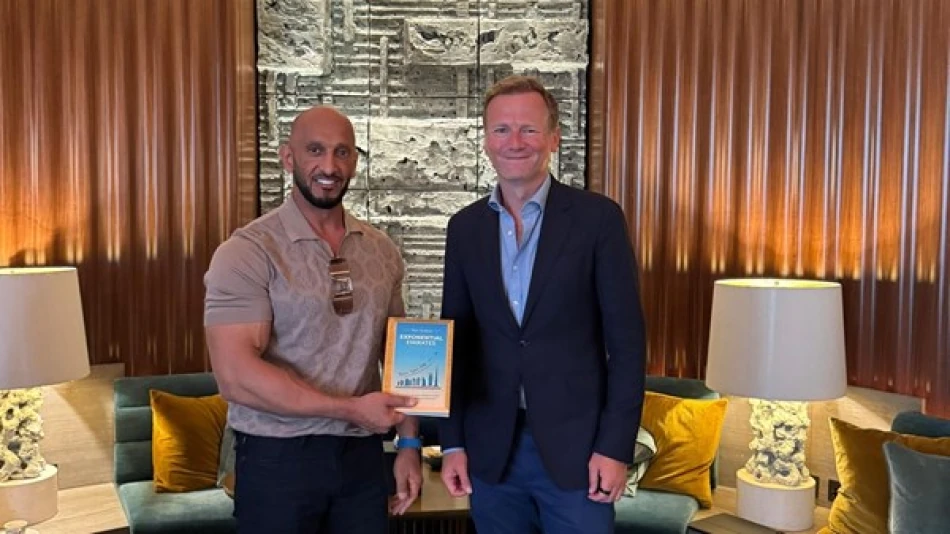
Al Hamed Explores Media and Tech Collaboration Opportunities in London
UAE Media Chief Explores AI-Driven Transformation in Strategic London Meeting
The UAE's top media official has met with a prominent technology investment expert in London to discuss leveraging artificial intelligence and data analytics to revolutionize the nation's media infrastructure. The high-level discussion signals the Emirates' intent to position itself at the forefront of media innovation as traditional broadcasting faces unprecedented technological disruption.
Strategic Partnership for Media Evolution
Abdullah bin Mohammed bin Butti Al Hamed, Chairman of the UAE Media Council and head of the National Media Office, engaged with Tom Hudson, a technology investment specialist and author of "Accelerated UAE," during the London meeting. The discussion centered on creating qualitative partnerships and drawing from international experiences in technology investment to develop the UAE's media infrastructure.
The conversation highlighted the critical importance of integrating legal and regulatory frameworks with technical innovation—a challenge many nations struggle with as they attempt to modernize their media landscapes without stifling creativity or falling behind technologically.
AI and Data Analytics as Game Changers
Al Hamed emphasized that current major technological transformations are pushing media institutions to become pioneers in adopting artificial intelligence tools and data analytics. This positioning reflects a broader trend across Gulf states, where governments are racing to establish themselves as regional technology hubs.
"Our vision in the UAE is based on building a flexible, innovative media ecosystem capable of anticipating audience needs and creating content that reflects our national aspirations and established identity," Al Hamed stated during the meeting.
Lessons from the "Accelerated UAE" Model
Hudson presented insights from his book "Accelerated UAE," which examines the nation's exceptional growth story and how it successfully employed characteristics of accelerated organizations in unique ways. The discussion covered the UAE's achievements during its first fifty years and expectations for coming decades, while highlighting how companies can benefit from opportunities in the Emirates.
Market Implications and Global Context
This strategic dialogue comes as media organizations worldwide grapple with declining traditional revenues and the need to embrace digital transformation. The UAE's approach mirrors similar initiatives in Singapore and Estonia, where governments have actively facilitated public-private partnerships to accelerate technological adoption in media sectors.
For investors and media companies, the UAE's systematic approach to regulatory alignment with innovation presents potential opportunities in a market that has historically been challenging for foreign media operations. The emphasis on creating sustainable, future-ready capabilities suggests long-term commitment rather than short-term experimentation.
Regional Leadership in Media Innovation
The UAE's focus on anticipating audience needs through advanced analytics positions it ahead of regional competitors who have been slower to integrate AI into their media strategies. This technological leap could establish the Emirates as the Gulf's media production and distribution hub, potentially attracting international content creators and technology companies seeking a regional base.
The meeting's emphasis on learning from international experiences while maintaining national identity reflects a mature approach to technological adoption—one that could serve as a model for other nations navigating similar digital transformations in their media sectors.
Most Viewed News

 Layla Al Mansoori
Layla Al Mansoori






